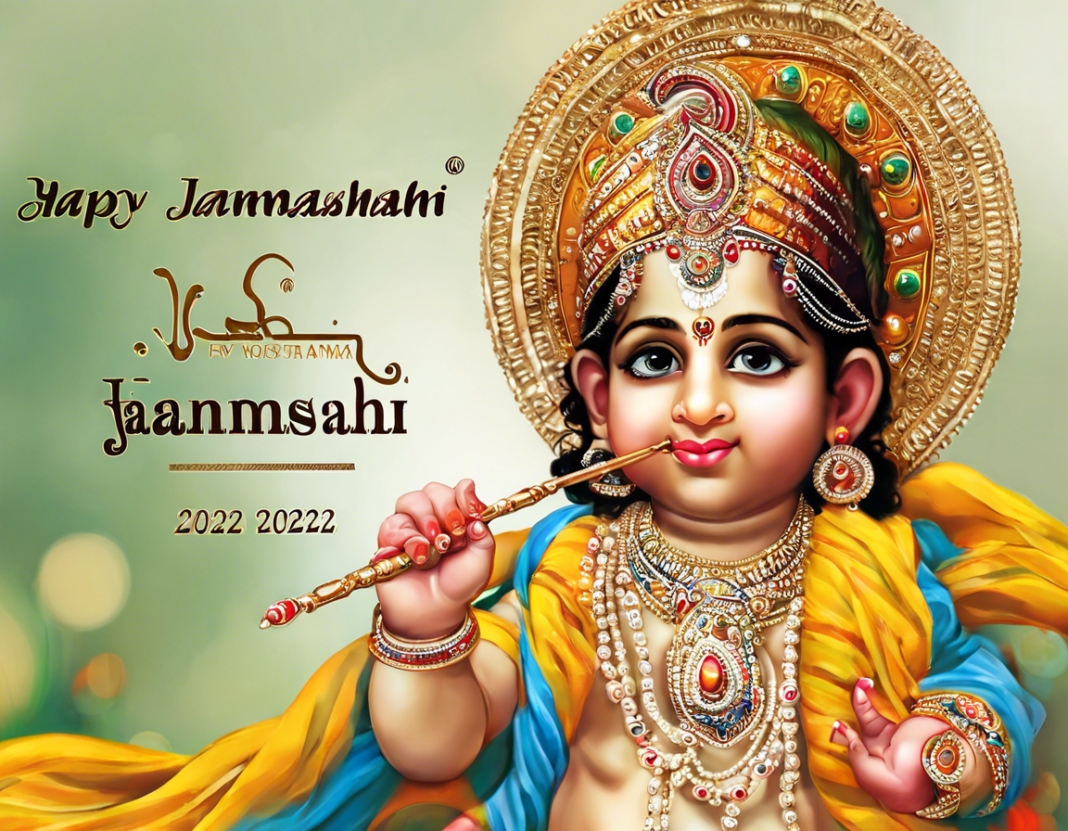The festival of Janmashtami marks the birth anniversary of Lord Krishna, one of the most revered deities in Hinduism. This auspicious occasion is celebrated with great enthusiasm and fervor by millions of devotees across the world. Janmashtami, also known as Krishna Janmashtami or Gokulashtami, falls on the eighth day of the dark fortnight in the Hindu month of Bhadrapada, which usually corresponds to the months of August or September in the Gregorian calendar. This year, Janmashtami will be celebrated on August 22, 2022.
Legend of Lord Krishna’s Birth
The birth of Lord Krishna is a significant event in Hindu mythology. According to the Bhagavata Purana, Lord Krishna was born to Devaki and Vasudeva in the prison of King Kansa in the city of Mathura. It is believed that Lord Krishna was an incarnation of Lord Vishnu, who took birth on earth to rid the world of evil forces and restore dharma.
Rituals and Traditions
Janmashtami celebrations commence with devotees observing fasts and performing prayers throughout the day. As midnight, the auspicious time of Lord Krishna’s birth, approaches, temples and homes are beautifully decorated with flowers, rangolis, and lights. Devotees chant bhajans, sing hymns in praise of Lord Krishna, and perform aarti to seek his blessings.
One of the most popular rituals of Janmashtami is the Dahi Handi ceremony, which reenacts Lord Krishna‘s mischievous childhood act of stealing butter. In this tradition, a pot of yogurt (curd) is suspended at a height, and teams of young men form human pyramids to break it, symbolizing unity, teamwork, and the joyous spirit of Lord Krishna‘s antics.
Significance of Janmashtami
Janmashtami holds great significance for devotees as it symbolizes the victory of good over evil and the importance of righteousness in one’s life. The teachings and leelas (divine plays) of Lord Krishna inspire people to lead a life of compassion, love, and devotion. The festival also serves as a reminder of the ultimate truth that whenever there is a decline in righteousness and an uprising of unrighteousness, the Lord reincarnates to restore balance and order in the universe.
Celebrations Worldwide
Janmashtami is celebrated with immense zeal not only in India but also in various countries worldwide, where a large population of Hindus resides. Temples are adorned with flowers and lights, devotional songs fill the air, and the sound of conch shells and bells resonate as devotees immerse themselves in the divine aura of Lord Krishna.
In countries like the United States, the United Kingdom, Canada, Australia, and Singapore, Janmashtami celebrations bring together people from diverse cultural backgrounds, showcasing the universal appeal of Lord Krishna‘s teachings of love, unity, and spirituality.
Health Benefits of Fasting on Janmashtami
Fasting during Janmashtami is not just a religious practice but also offers several health benefits. It detoxifies the body, improves digestion, boosts immunity, aids in weight management, and promotes mental clarity. Navratri fasts, similar to Janmashtami, are considered beneficial for overall well-being and rejuvenation.
FAQs (Frequently Asked Questions)
1. What is the significance of fasting on Janmashtami?
Fasting on Janmashtami is believed to cleanse the body and soul, purifying one’s mind and spirit to welcome the blessings of Lord Krishna.
2. Can children and elderly people observe fasts on Janmashtami?
Children, elderly individuals, pregnant women, and individuals with health conditions are often exempt from strict fasting rules. They can choose partial fasting or opt for a sattvic diet.
3. Why is Lord Krishna also known as Makhan Chor (butter thief)?
The playful act of stealing butter (makhan) by Lord Krishna as a child symbolizes his mischievous yet endearing nature and is a source of joy and laughter for devotees.
4. How is Janmashtami celebrated in temples and homes?
Temples are decorated with flowers and lights, idols of Lord Krishna are bathed, dressed in new attire, and placed in cradles. Devotees sing bhajans, offer prayers, and partake in feasts.
5. What is the significance of the Dahi Handi ceremony on Janmashtami?
The Dahi Handi ceremony symbolizes unity, teamwork, and breaking barriers to reach the ultimate goal, mirroring the spirit and essence of Lord Krishna‘s life and teachings.










